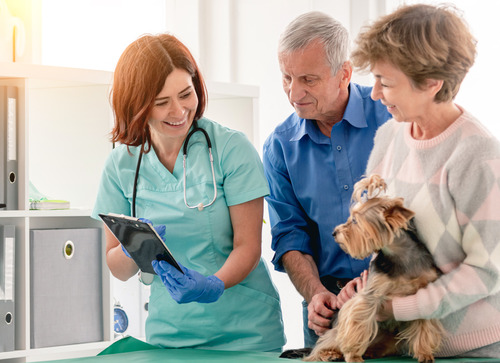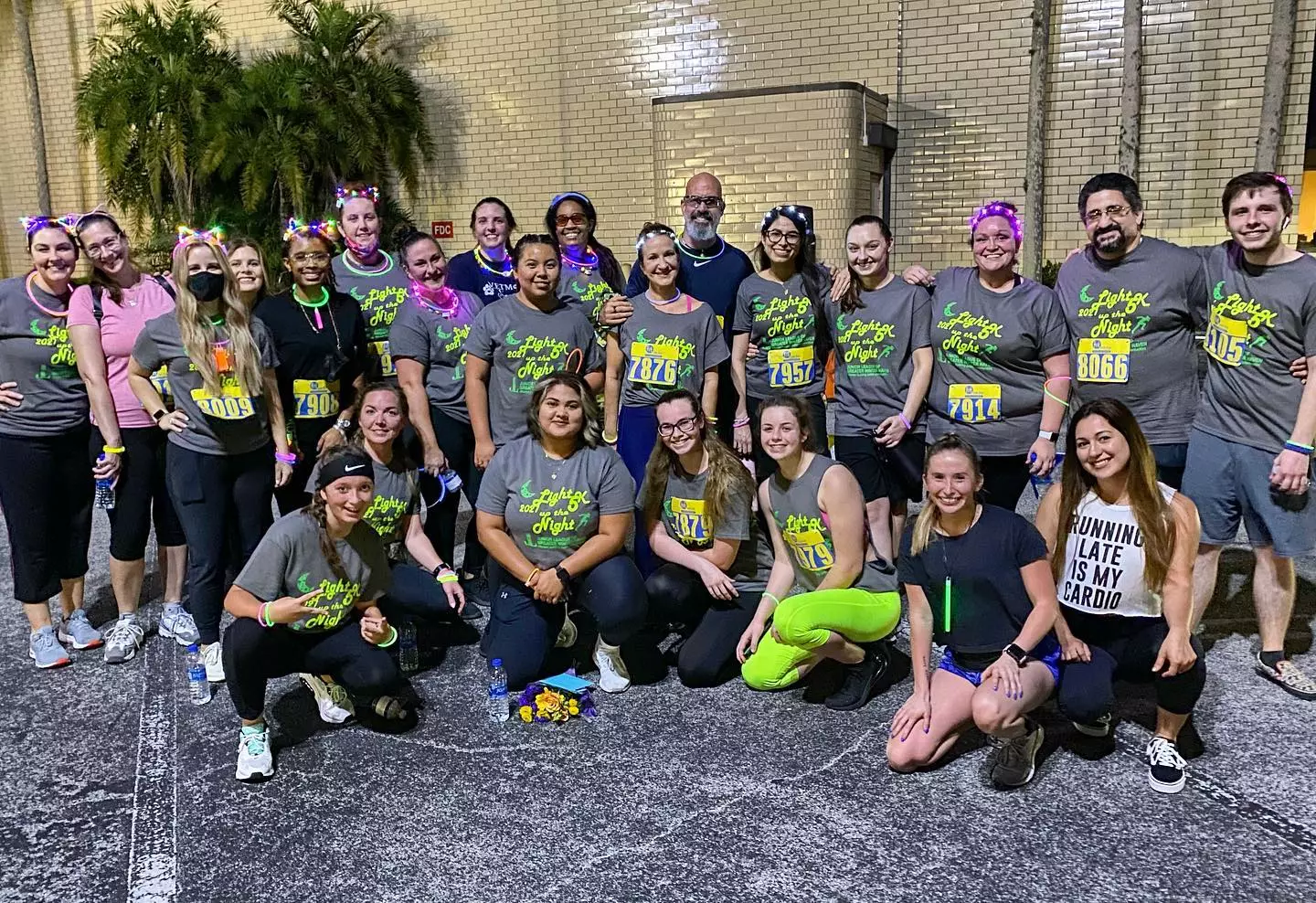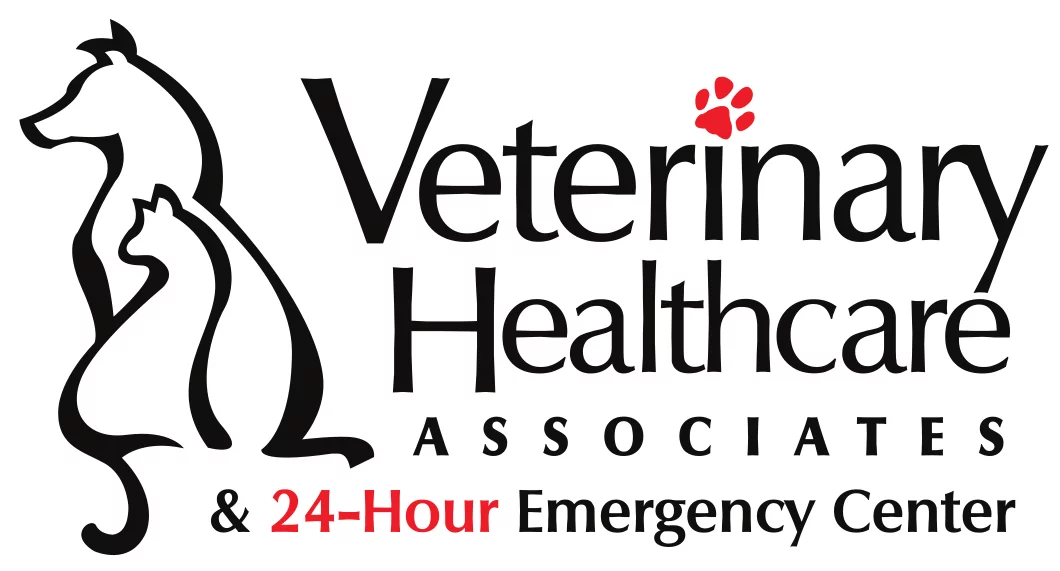A Day in the Life of Veterinary Oncologist
Every day for a veterinary oncologist at Veterinary Healthcare Associates begins with a commitment to hope and healing. The journey through cancer treatment is complex and challenging, both for the pets who receive care and the specialists who guide them. These dedicated professionals plan their approach, ready to face the day’s unique challenges with empathy and expertise. The work they do not only supports the physical health of animals but also brings comfort and reassurance to the families who love them.

Morning Rounds and Patient Assessments
A typical day for a veterinary oncologist begins early, with morning rounds to check on hospitalized patients. Each pet undergoing treatment is carefully monitored, with the oncologist reviewing their overnight progress, vital signs, and any changes in their condition. These morning assessments help the oncologist tailor the day’s treatment plan to meet each patient’s needs.
Discussing Cases with Their Team
During rounds, the oncologist may discuss cases with the veterinary team, ensuring everyone is aligned on the treatment strategy. This collaborative approach enables our oncologists to provide comprehensive care, as the insights from veterinary technicians, nurses, and other specialists can shape the treatment course. The day’s first consultations are also prepared, with the oncologist reviewing patient histories, recent test results, and potential treatment options.
Meeting with Pet Owners
These sessions are an opportunity for the oncologist to discuss a patient’s diagnosis, treatment options, and prognosis with the family. Veterinary oncologists often have to balance delivering difficult news with offering hope and support. They guide pet owners through the complexities of cancer treatment, from understanding different chemotherapy protocols to discussing possible outcomes and side effects.
Effective Communication
Pet owners need to feel informed and confident in the decisions they make for their pets. The oncologist takes the time to answer questions, provide detailed explanations, and ensure the family is comfortable with the treatment plan. In some cases, this may involve coordinating with other specialists or discussing alternative therapies, depending on the pet’s condition.
Developing a Treatment Plan
Based on the consultation and patient assessment, the oncologist develops a personalized treatment plan. This plan might include chemotherapy, radiation therapy, or surgery, depending on the type and stage of cancer. The oncologist considers various factors, such as the pet’s overall health, age, and the specific characteristics of the cancer, to create the most effective treatment regimen.
Administering Treatments
Veterinary oncologists manage chemotherapy, radiation, and other treatments with precision, closely monitoring each pet’s response. They may adjust dosages, provide supportive therapies, or conduct additional tests as needed. A team of skilled technicians assists in handling the animals, preparing medications, and monitoring vital signs. Strict safety protocols are followed to protect both pets and staff from exposure to hazardous substances used in these treatments.
Monitoring and Adjusting Treatment
Throughout the day, the oncologist monitors each pet’s reaction to their treatment. Adjustments may be necessary based on how well the pet is tolerating the therapy. Regular blood tests, imaging studies, and physical exams help the oncologist make informed decisions about continuing, altering, or halting a particular treatment.
Staying at the Forefront of Veterinary Oncology
Time is often set aside each day for reviewing recent studies, attending webinars, or consulting with colleagues on complex cases. At Veterinary Healthcare Associates, our oncologists are committed to applying the latest advancements in cancer treatment to their practice, ensuring that pets receive the best possible care. The oncologist may review the progress of ongoing cases with the veterinary team, discussing any challenges or breakthroughs in treatment. These reviews help refine treatment protocols and improve outcomes for future patients.
End-of-Day Rounds: Reflecting on the Day and Preparing for Tomorrow
As the day winds down, the oncologist conducts end-of-day rounds to check on patients before the evening. These rounds involve reviewing each pet’s progress and planning overnight care with the veterinary team. The oncologist might also take this time to update pet owners on their pets’ conditions, answering any questions and providing reassurance. The oncologist may review the day’s cases, considering what went well and what could be improved. This continuous learning process helps maintain high standards of care and ensures that each pet receives the best possible treatment.
Preparing for the Next Day
The oncologist reviews the schedule, prepares any necessary documents, and ensures that everything is in place for a smooth start the following morning. This careful planning helps the oncologist stay organized and ready to provide the best care possible to each patient.
Embracing the Rewards and Challenges of Veterinary Oncology
Being a veterinary oncologist is both rewarding and challenging, requiring compassion and resilience to guide pets and their owners through the cancer journey. The team at Veterinary Healthcare Associates is deeply committed to improving animal health and making a meaningful difference in the lives of pets and their families. The job’s rewards, like seeing a pet go into remission, are immense, even amid daily challenges. If you’re interested in learning more or joining our team, send us an email to MyDreamJob@vhavets.com.

About VHA
At VHA, we believe in the unlimited potential that lives in you--and in all of us. With the veterinary industry becoming more corporate, we’re determined to bend the arc of veterinary medicine and bring it back to what it’s meant to be; a universal experience that strengthens the bonds between animals and people and makes them happy, healthy, and healed.
